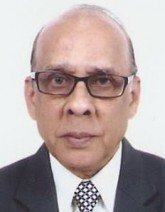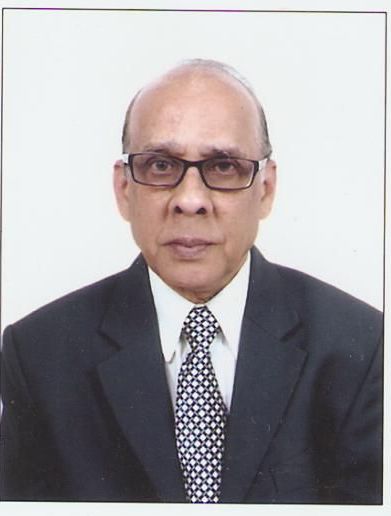The moral side of Ramayana-5 (Dr.A .Sreekumar Menon)

We should not bother whether the incident actually occurred or not we should draw out what comes out this episode. It demonstrates that even herculean tasks can be accomplished with single minded devotion and hard and sustained work. Bhagiratha felt that he was indebted to even his fore fathers .Today we find that children do not feel that they owe even to their parents, let alone to their grandparents. According to Hindu faith, the purity of the family is traced to several generations. It is the duty of people born in a family in several generations to keep the family tradition by noble acts. Dasaratha and his sons Rama, Lakshmana and others felt that it was their duty to keep up reputation and sanctity of their family called’ Iksvahu’. They were proud of being born in such a family of people known for their virtues spanning over hundreds of years and none of them would do anything which would tarnish their family’s image . Families had immense influence on the conduct and character of the people. W have lost this traditional Indian value today in our way of life characterized by Industrial and consumerist culture.
They reached Mithila city. Rama noticed a slab of stone half buried in the ground near the wall of the fort. When the dust from his feet fell on the slab, as he brushed past, it transformed itself into a charming women. Her name was Ahalya means one with absolutely no imperfection or women of perfect beauty. Viswamitra told the Story of Ahalya .Lord Brahma, the creator of universe created the most enchanting women Ahalya . Lord Indra was so infatuated with her beauty that he wanted to own her. . Brahma noticed the conceit on the part of Indra . He did not let him have her. Instead he left her under the care of sage Gouthama . When she grew up as a maiden, he brought her back to Brahma. He did not entertain any carnal desires towards her , which ordinary mortals would have entertained because of bewitching charm
Here the moral is that we should see members of the opposite sex as brothers and sisters ot the relationships should not influenced by libidinal motives.
Viswamitra, being impressed by the uprightness of Gautama got Ahalya marred to him . But Indra’s infatuation towards Ahalya continued unabated. He kept trying to hook her. One day being unable to resist his temptation, he sounded like that of of a rooster much before dawn to make Gautama think it was dawn and to go out for his daily ablutions.. As soon as Gautama left his abode, Indra appeared there looking like Gautama. Ahalya accepted him ,mistaking him to be her husband .After a while she made out that he was not her husband and felt guilty of being in the company of another man .When Gautama returned home , he saw his wife in the company of another person . He lost his temper and cursed Indra that feminine parts would appear all over his body, as he had weakness for females. Thus his body was disfigured and Indra could not show himself, because of shame .The duties of Indra remained unattended, because of which there was chaos. Seeing his condition, Gods prayed Gautam to nullify his curse . Gautum’s temper had cooled down by then . He declared that in place of female parts, eyes would appear. Thus, it is said that Indra was endowed with 1000 eyes .
Gautama cursed his wife Ahalyla, though she repented for her thoughtless action and prayed him to forgive her for sin , as great people would forgive the sins committed by lesser beings . He gave her punishment of lesser severity . He told her she would turn into a lifeless form of a slab of stone and would remain like that until the the dust of Rama’s holy feet fell on it which would take place after several years . She was waiting for her redemption. Rama revived her original form and let her to join her husband and live happily thereafter.
The moral of the story is that one should not covet women who are married to another and that members of the opposite sex should behave towards each other as brothers and sisters. That is without entertaining libidinal motive. Similarly we should understand that infidelity either on the part of wife or husband is an inexcusable misconduct. In other words, we should be decent in our behavior with members of the opposite sex. Much self-control is called for developing this attitude. With modern mass media of communication including electronic media applying ‘feminist themes ‘ in ads to make people gullible , tight control on our impulses is rather difficult . The only remedy is to enforce strict codes of conduct by mass media in their advertisement campaigns. This is the only way to check the moral degradation of our society, which is taking place slowly, but gradually. Equal participation of women as that of men is required in all activities both from the point of view of efficiency and sense of freedom which women are entitled to. The attitude referred to above need be cultivated, if the participation and joint effort were to take place in its true spirit. Ahalya committed a moral crime unknowingly. Still she had to undergo punishment. This shows that there is no excuse for a sin committed unknowingly or without the explicit motive of committing the sin. We should be vigilant enough not to commit anything wrong morally.
The people of Mithila were in festive
spirits as all were looking forward to Sita’s wedding. Kings from all the neighboring kingdoms had
arrived in the palace responding to King Janaka’s invitation with high expectations
and spirit competes with each other to be eligible to wed Sita. As it was
difficult to choose the right groom for her daughter, King Janaka proposed that
whoever. lifted the heaviest of the
heavy bow called Gandiva would wed Sita .When Rama arrived the
palace , Sita and Rama could glance each other .They felt instantly
attracted to each other .Sita’s mind was disturbed the moment she saw Rama
thinking about him and wishing to marry him . She even declared that she would
immolate herself, if anyone else other than Rama won the feat and became
eligible to marry her. . The final moment came. All were seated in the durbar
hall. Sita too was seated there. The army of men lifted the bow and brought it
to the Assembly hall. Each king in the row attempted to lift the bow, but
failed, got disheartened and left the place. Rama and Lakshmana were seated in
the place reserved for Brahmins. When
their turn came, people objected saying that only people of warrior class were
allowed to participate and Rama, being a Brahmin should not allowed taking part.
It was a case of baseless indiscrimination .we often shows our parochial attitude which spells
disaster. To this Dasaratha decreed that Rama could take part, as no such
stipulations were announced. Rama came to the stage picked up the bow and,
tugged the string. He held the bow so firmly that it cracked at its arch
producing a thunderous noise, which reverberated the whole place.
. There was jubilation all-round .Even Gods and other heavenly beings were told to have attended the ceremony descending on earth assuming human forms. .The joy of Janaka and especially that of Sita knew no bounds. Janaka made grand celebrations and got Rama and Sita married . Rama and Sita matched each other’s greatness .In other words, they were perfect match. . Dueto Dasaratha’s effort, Rama’s three brothers also found brides and they also got married. After the wedding, Dasaratha with his sons and daughter-in-laws returned to his capital, Ayodya.
The message that comes out of this episode is that the couples should be perfect match to each other in terms of congruity of their personality ,attitudes and life styles etc or they should learn mutual adjustment for longevity and happiness of their married life .In other words couples should not take marriage lightly . On the other hand they should take it seriously, prepare to lose their individual identities and idiosyncrasies and form a collective identity. It is seen in the later part of the story how Sita proves to be a ‘sahacharini or fellow traveler ‘to Rama. She leaving all the regal pleasures, without second thought, accompanied her husband to serve him leading hard life in forest wandering in different places. What else is that other than tremendous adjustment on the part of Sita to Rama’s life style?.






